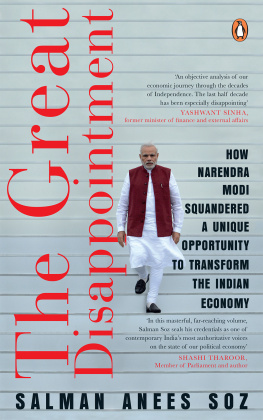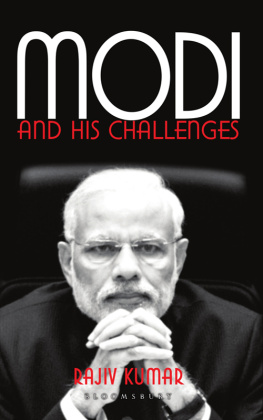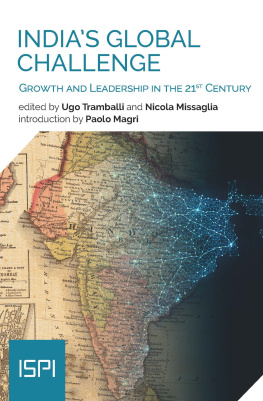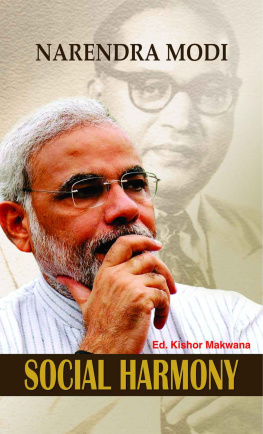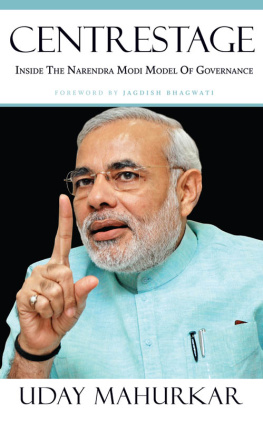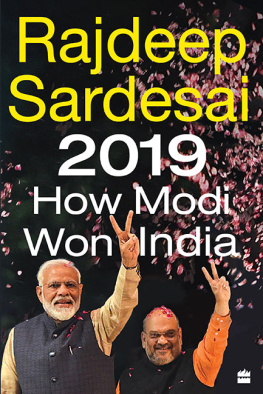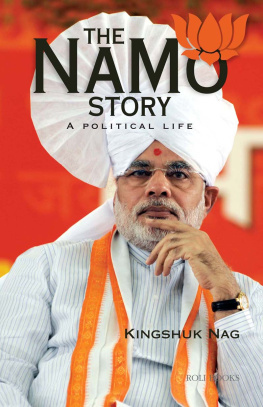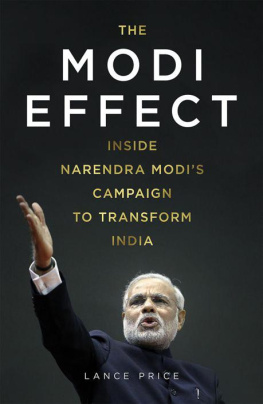Advance Praise for the Book
For anyone interested in the economic history of India from after Independence to now, this is the book to readan objective analysis of our economic journey through the decades of Independence. The last half decade has been especially disappointing. A huge opportunity provided by both domestic and global factors has been wasted by a government busy with only event and headline management.Yashwant Sinha, former minister of finance and external affairs
As the Modi-led NDA reaches the end of an underwhelming term, Salman Soz eviscerates its economics in prose that is refreshingly accessible, engaging and lucid. The Great Disappointment offers a straightforward and timely appraisal of five years of confused economic policymaking and catalogues the great opportunities squandered by the ruling dispensation. In this masterful, far-reaching volume, Salman Soz seals his credentials as one of contemporary Indias most authoritative voices on the state of our political economy.Shashi Tharoor, member of Parliament and author
In The Great Disappointment, Salman Soz has placed his finger unerringly on the single-most intriguing political economy question of our times: How did Narendra Modi, elected with such fanfare to transform the Indian economy, end up wasting the opportunity of a lifetime? This book is a must-read for anyone with a serious interest in the Indian economy. Sadanand Dhume, columnist, Wall Street Journal
Salman Soz has produced a very timely must-read on the Modi governments economic record, carefully separating fact from fiction. Despite good luck in the form of low oil prices and a benign global environment, the outcomesespecially on job creation and farm distressare as the carefully researched book aptly shows, hugely disappointing. For achhe din, India needs a carefully thought through vision for the futurenot a compendium of political slogans and flashy schemes.Ajay Chhibber, former assistant secretary general, United Nations and senior World Bank official
In The Great Disappointment, Salman Soz prosecutes a sustained, empirical critique of the Modi governments stewardship of the economy. With lucid prose and rich detail, Soz provokes a timely debate that every Indian has a stake in.Milan Vaishnav, senior fellow and director of the South Asia Program, Carnegie Endowment for International Peace
To my father, Saifuddin Soz, and my life partner, Asia Mubashir, for pushing me to write this book
To my mother, Mumtaz Soz, for her endless supply of love and encouragement
To my amazing little children, Asmara and Zaydan, for patiently waiting for Daddy to finish writing and being more excited about it than even I was
To Soola, my adorable dog, for always sitting by my side and keeping me company while I wrote this book
Introduction
T he first single-party majority government in three decades raised hopes for change and a significant step-up for India, a country that remains poor despite progress in recent decades. In 2014, Narendra Modi and the Bharatiya Janata Party (BJP) campaigned on promises of limited government, good governance and economic transformation. Modi presented himself as a masterful leader, ready to launch India into a new era of prosperity. Hopes ran high. The atmosphere was heady and feverish. There was a general perception in the country that Narendra Modis performance as chief minister of Gujarat was demonstrative of his credentials as a pro-business leader with a can-do attitude. During his highly successful 2014 election campaign, candidate Modi railed against big government, declaring, I believe government has no business to do business. The focus should be on Minimum Government but Maximum Governance. As the National Democratic Alliance (NDA) completes its term in 2019, the governments economic policies and programmes are due for a proper and full assessment.
With the biggest political mandate in almost three decades and under a leader widely perceived to be one of the most powerful prime ministers India has ever had, did Indias economic trajectory make a decisive break from its past? This is the central question of this book project. The fundamental question raised and investigated in this book is not simply about the usual political question: Are you better off today than you were five years ago? It is deeper. In Modis case, it was never about a new government performing better than the one it was replacing. It was about making the case that given a chance, the Modi government would not just outperform all predecessor governments but would match their cumulative performance within its first term. Hence Modis famous line from the election, You gave Congress 60 years, give BJP just 60 months, is a running theme in this book.
Of course, some of this is political positioning and campaign management but the expectations were so high that the former ruling party, Indian National Congress, ended up with just forty-four seats in the Lok Sabha (lower house of Parliament), by far its worst performance ever. It is therefore important to cast this promise of transformation as the central question of this book. This broader question includes several components:
- Has the Modi government been able to deliver on its campaigns economic narrative, one that promised a conservative, minimum-government stance?
- Has the Modi government promoted the next generation of reforms that the previous government was unable to pursue?
- Have macroeconomic policies led to the promised spurt in growth and job creation?
- Has the investment scenario significantly improved compared to that under the previous economic regime?
- Have agricultural development and the ruralurban transition happened in a fundamentally different way than past experience?
- Has the Modi government focused adequately on human-development policies that can help young people become productive members of society?
The question of transformation is not just about Modis success or failure. It is much bigger than that. We in India must think critically about policies for the future. We are at a critical moment in our history and the next governments policies could have lasting effects as the worlds pace of change accelerates, driven in part by disruption and technology, and a new populist, anti-globalist political environment. Countries around the world confront the question of how best to effectively manage these changes, driven in large measure by technological innovation, climate change and demographic shifts. Prosaic needs anchor these big themesthe well-being of the human race, most commonly projected through a desire to ensure a good future for the next generation. Worries about the future, especially the future of work, are dominating the discourse in international economic development. There are also worries about how unequal progress will be and if some people will inevitably be left behind.

